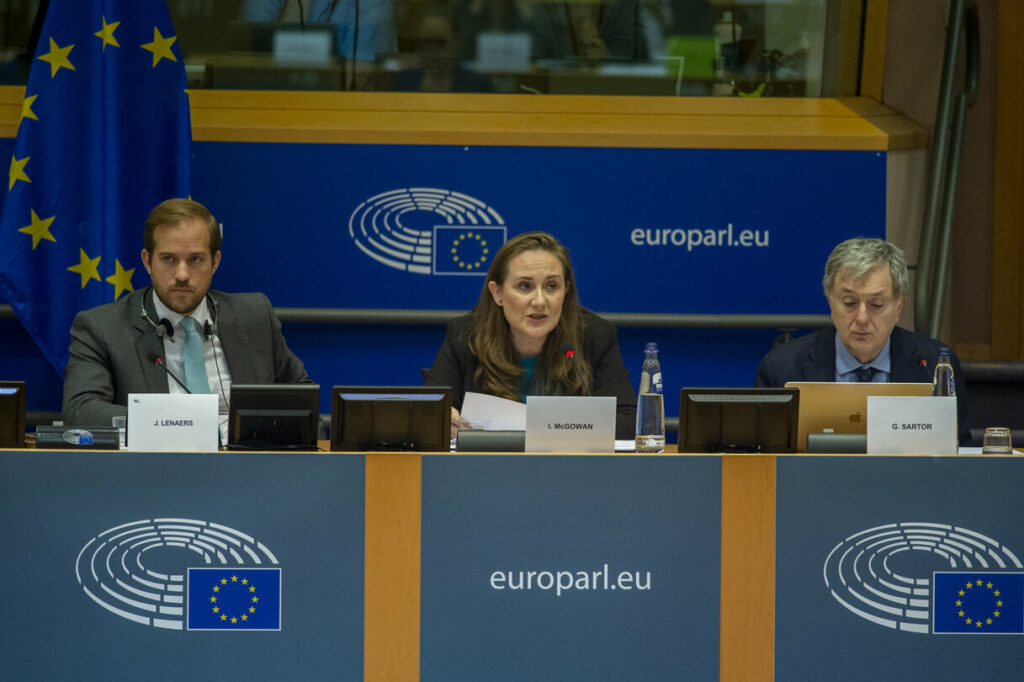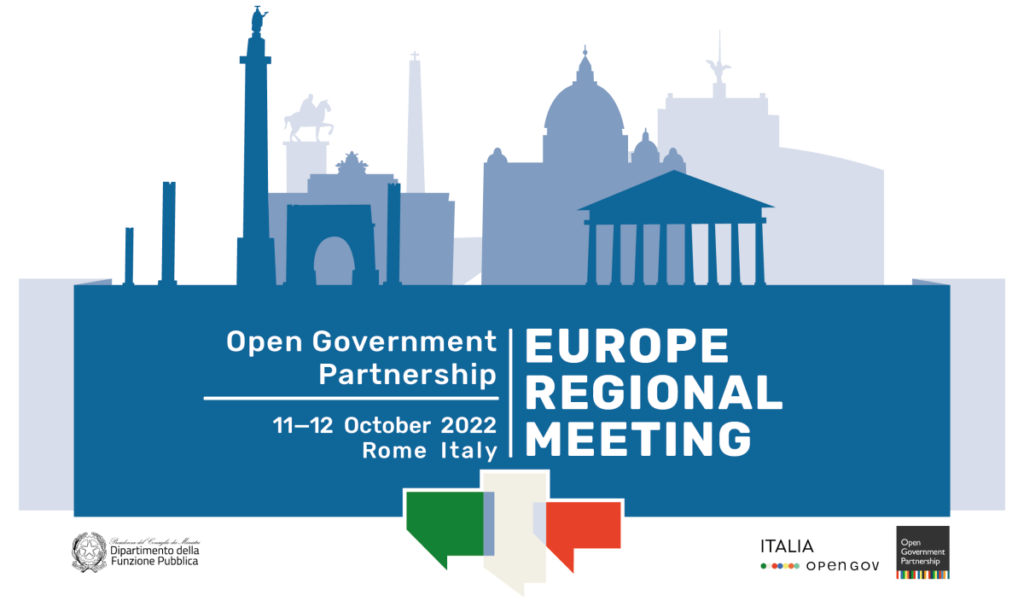European Policy, Free Expression, Government Surveillance
EU Tech Policy Brief: October 2022 Recap
This is the October 2022 recap issue of the Centre for Democracy & Technology Europe‘s monthly Tech Policy Brief. It highlights some of the most pressing technology and internet policy issues under debate in Europe, the U.S., and internationally, and gives CDT’s perspective on them. Our aim is to help shape policies that advance our rights in a digital world. Please do not hesitate to contact our team in Brussels: Iverna McGowan, Asha Allen, and Ophélie Stockhem.
CDT Europe Addresses European Parliament Committee of Inquiry on Surveillance Spyware
On 27 October, Iverna McGowan, Director of CDT’s Europe Office, testified during a hearing on “The impact of Spyware on Fundamental Rights, Democracy and Electoral Processes,” which was held by the European Parliament’s Committee of Inquiry to investigate the use of Pegasus and equivalent surveillance spyware (PEGA Committee).
The hearing examined the negative impact of Pegasus and equivalent surveillance spyware on fundamental rights, and welcomed renowned panellists such as former UN Special Rapporteur on Freedom of Expression, David Kaye. Panellists discussed the adverse impact of spyware on democratic processes in Member States, particularly on elections at local, national, and European levels.
McGowan focused on the implications of unlawful surveillance for democracy, human rights, and civic space, and laid out some of the particular challenges that spyware can pose in the context of electoral integrity. She also reflected on the need to further strengthen the EU’s Dual Use Regulation in relation to export controls on cyber surveillance equipment.

CDT Europe Calls on EU Ministers to Ensure Regulation on Political Advertising is Fundamental Rights-Compliant
On 28 October, following the Czech presidency’s submission of a new compromise text on the Regulation on Political Advertising, the European Partnership for Democracy — together with 33 other civil society organisations, including CDT — addressed a letter to EU Ministers for European Affairs with recommendations to ensure the Regulation protects democracy and fundamental rights.
In the letter, the signatories highlight risks that the current compromise text presents. Those risks include restrictions on the ability of civil society and individuals to express views on political matters, which would hinder democratic discourse and public participation; the lack of clarity in regards to which acts or omissions will be sanctioned under the proposal; and the postponement of the adoption of key measures until 2026.
The letter calls on the relevant Ministers to ensure that the Proposal clearly defines the scope of political advertising, with no side effects for civic participation, and ensures that key measures for electoral integrity are implemented as soon as possible.
CDT Europe Joins OGP Europe Regional Meeting to Discuss Current Regional and Global Challenges
On 11 October, Asha Allen, Advocacy Director for Europe, Online Expression, and Civic Space, joined the Open Government Partnership’s Europe Regional Meeting. Co-hosted by the governments of Italy and Estonia in Rome, the event gathered governments and civil society to discuss ongoing challenges and raise collective ambition to make governments more transparent, accountable, and responsive to citizens.
Speaking at a side meeting, Allen outlined regional trends about disinformation – including gendered disinformation – and the potential impacts of the phenomenon on democratic processes and civic exchange. She spoke to the need for governments to consider the negative impact that initiatives tackling disinformation may have on free expression and other critical civil liberties.
Allen insisted that frameworks developed to address disinformation need to adequately and proportionately protect all the fundamental freedoms. She recommended that governments focus their efforts on providing better access to data related to disinformation; on ensuring obligations for platforms to comply with due diligence obligations, such as conducting risk assessments on the prevalence of disinformation on their platforms; and on reinforcing cooperation between human rights advocates, journalists, researchers, and technical experts.

CDT Europe Joins New UN B-Tech Consultation
On 21 October 2022, Asha Allen, Advocacy Director for Europe, Online Expression, and Civic Space, joined an UN B-Tech consultation to discuss the limitations and advantages of a Business and Human Rights approach to tech regulation. Allen spoke at a panel on ‘Building blocks for a technology regulation guidance tool centering on the UNGPs’.
Following up on last year’s consultation, which launched a new partnership between CDT Europe, the UN Human Rights B-Tech Project, and the Geneva Academy, the event was the occasion for the B-Tech Project to discuss their new ‘UNGPs check’ tool, which helps policymakers and other stakeholders assess whether regulatory or incentive-based initiatives directed at tech align with the UNGPs.
CDT will continue collaborating with the UN Human Rights B-Tech Project to explore human rights-based approaches to tech regulation and provide expertise concerning the potential uses of the ‘UNGPs check’ tool.
Vânia Reis and Rachele Ceraulo Join CDT Europe as Communications and Advocacy Interns
The Centre for Democracy & Technology Europe (CDT) is delighted to welcome Vânia Reis and Rachele Ceraulo, who started internships in Communications and Advocacy, respectively.
Vânia began her professional career in Public Relations with Lewis Communications in Lisbon, and after spending more than two years in digital marketing and communications in the tourism sector, she began exploring her strong interest in EU public affairs. Vânia holds a Master’s degree in Communications Studies, News Media and Society in Europe, from the Free University of Brussels, where she developed expertise in European media policies and built her interest in the challenges of technology and its impacts on democratic rights. Her thesis explored the theme of disinformation online.
Rachele comes to CDT Europe with a keen interest in EU Digital and Cyber Diplomacy. Most recently, she was part of a team advising the European External Action Service (EEAS) on how to strengthen the Union’s global role and vision in digital affairs. Notably, Ceraulo coordinated research on the role of strategic digital and cyber partnerships with like-minded partners in promoting the EU’s digital agenda. She graduated in 2022 from the Brussels School of Governance with a Bachelor’s Degree in International Affairs and Security Studies, and wrote her thesis on the decision-making process that led the Nigerian terrorist group Boko Haram to deploy female suicide bombers in 2015.


